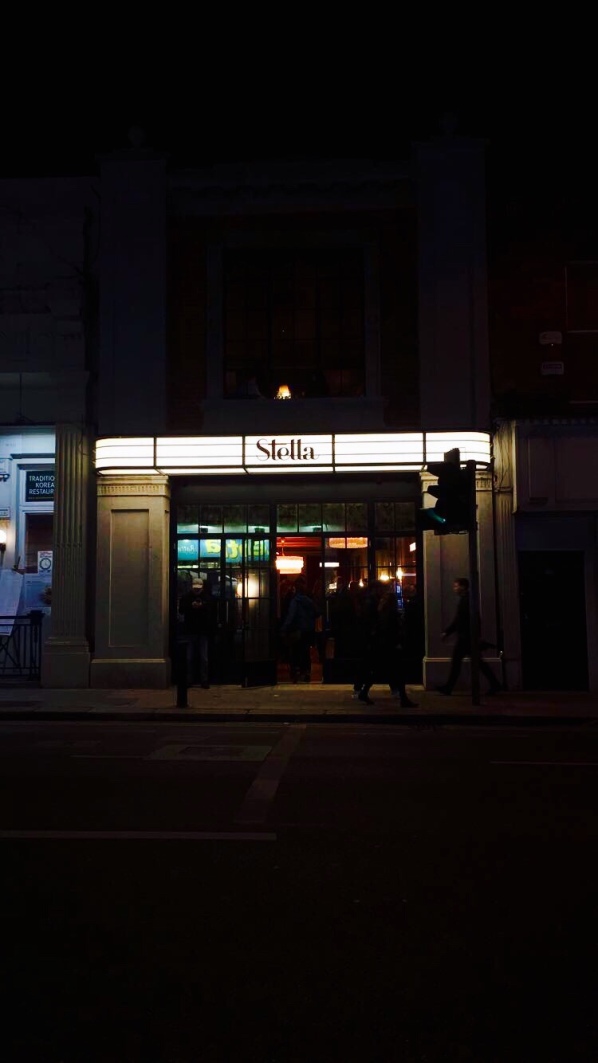
Sitting in the front room with my head tilted at a 90 degree angle, I’d take in all of the classics in front of me. Our bookcase had long since been rebranded as a Video and DVD store and my young tilted head always enjoyed any new additions to the collection.
I’d angle the less familiar titles out, the triangular shape peaked out from the shelter of their comrades. It was the covers that always stuck in my mind, the titles leaving my imagination to run wild with these films that always seemed to be about older, more sophisticated subject matters.

Goodfellas, with the three polished musketeers scolding the lens with their arms crossed, always conveyed a sense of uneasiness – maybe my infantile intuition could sense the gangster element even then. The Taxi Driver cover was of course an easier mental correlation to facilitate, but the bohemian black and white palette insinuated that there was more to this isolated soul than meets the eye. Most eye-catching of all, and the most troubling to my young mind was that of On the Waterfront. I wouldn’t truly understand the gravity of Brando’s presence, the eccentricness of his personal character or the post-modern nuances of which made his name, for many years later. But I’ll never forget studying this mans’ sullen expression, stealthily guarding a hidden complex behind those infamous hooded eyes.
These titles, though thrown around arbitrarily and referenced mercilessly, are generally reserved for film buffs or audiences that were of the time. Particularly with the lack of time we have in the modern world, we tend to avoid the unknown or unfamiliar titles like the plague. If it’s not in your Nextflix ‘Suggestions For You’ carousel – why should you bother? You should step out of your personalised data comfort zone because these films serve as honourable parables of the human conscience. They are the purest form of humanity and realism that I have ever encountered.
Time is precious. Let me do the heavy lifting and tell you why you should watch this month’s oldie: On the Waterfront (1954)
It will make you feel something
Budd Schulberg’s script is an undisputed masterpiece and despite his fortuitous and privileged upbringing, he managed to capture the true plight of longshoremen in 1950’s Hoboken. Those last five or six words in the preceding sentence are the PR buzz words that have swarmed the description of this film since its release date. It doesn’t truly encapsulate the nerves of steel you must call on to watch these broken men, who have no other choice but to engage with the pressures inflicted upon them by the local mob. Nor does it convey that universal sibling relationship complex between Brando and Steiger’s characters, the climax of which results in a brutal, but disarming exchange during the infamous taxi scene. Neither does it detail the sophisticated nuances of Brando’s demeanour. Martin Scorsese famously quipped that he was the marker in terms of cinematic realism: there is before Brando and after Brando; he is the marker.
Eva Marie Saint
Elia Kazan took a bet on Eva Marie Saint when he cast the young inexperienced ingenue as Brando’s love interest. Lookalike Grace Kelly’s would no doubt have brought a similar level of feminine guile to the role of Edie, but Saint played a blinder that ultimately would lead to her Oscar win.
Where Saint portrays Edie in her most vulnerable moments, she simultaneously displayed fleeting indications of strength. Her soft and gentle prods at Brando’s troubled disposition serve not only as the films solitary female opinion, but as the films’ moral conscience. We can always identify with the thwarted and damaged soul of Brando, after all his defensiveness and street gall has been one of the films’ most infamous draws, but arguably it is Saint’s portrayal of Edie which resonates as reflections of our own longing to want to do better.
As I gazed at the bookcase in wonder all those years ago, I was curious to know more about these films. All of these titles that ironically would later constitute the vast majority of my most revered film favourites. Each of them presented my young eyes with complexity and uncertainty. I couldn’t have known then that despite their character complexities and plotting intricacies, they were one in the same in terms of understanding.
These movies made us feel something. Their scripts weren’t perfect, but where they excelled was in their paradoxical dual presence of uniqueness and collectiveness. They are devoid of formula, and brimming with collective feeling.
There’s a reason that films like On the Waterfront populate the resources of academic papers, film education and movie history. They were the trailblazers, setting a precedent for everything that came after and throwing out what came before. Their 20th century status shouldn’t dissuade you from viewing them; in fact you should consider their viewing a necessity. If you want realism, step back in time. If you want formula, keep spinning that suggestion carousel.
Reblogged this on film•for•thought.
LikeLike